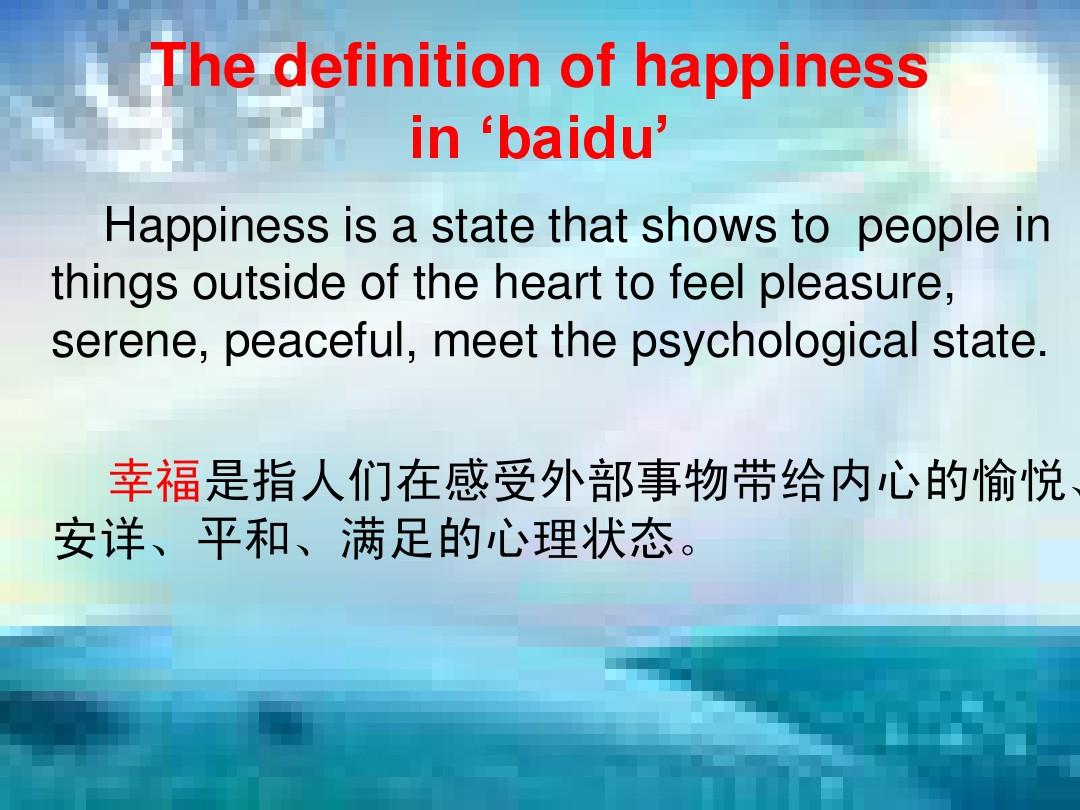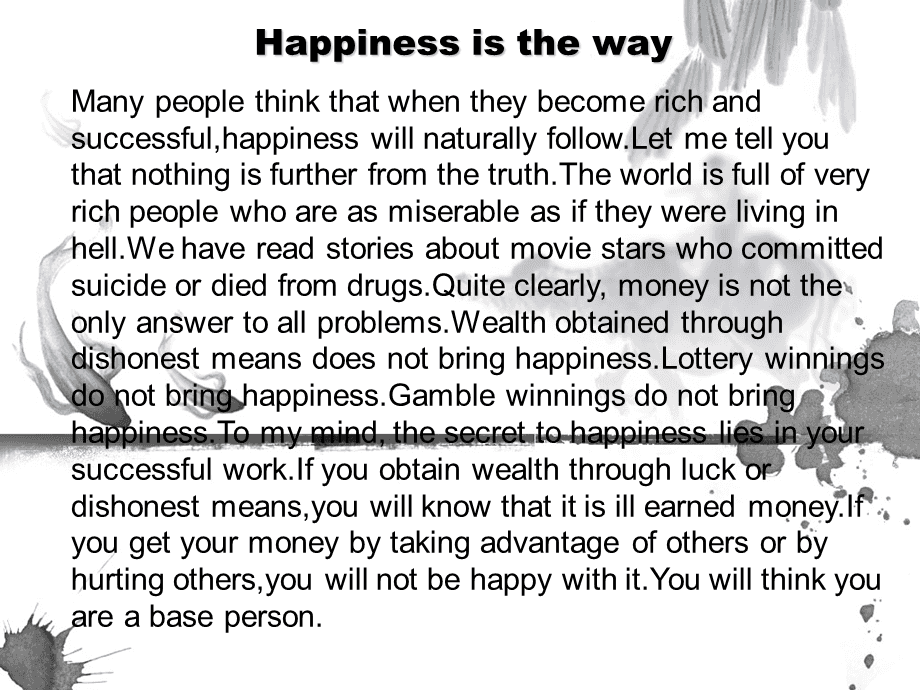摘要:幸福的核心本质在于内心的满足和和谐。它并非依赖于外部环境的优越或物质的丰富,而是源于个人内心的平和与满足。通过追求内心的真实需求,建立积极的人际关系,以及保持对生活的热爱和乐观态度,人们可以体验到真正的幸福感。这种幸福感是持久而深刻的,能够提升个人的生活质量并带来内心的安宁。
In the vast canvas of human existence, a question often repeated like a gentle refrain is "What is happiness?" This question has no definitive answer, as happiness is a subjective experience that varies from person to person, culture to culture, and even moment to moment. Despite its elusive nature, the pursuit of happiness remains a universal goal and a fundamental human aspiration.
For some, happiness is a state of contentment and tranquility. It is found in the simplicity of everyday life, in the warmth of a loved one's embrace, or in the comfort of a familiar routine. For others, happiness is more dynamic and adventure-filled, seeking new experiences and challenges that push personal boundaries and growth. Whether it's the quiet joy of a morning cup of coffee or the excitement of conquering a new peak, happiness is experienced differently by each individual.
The definition of happiness often hinges on our values and life circumstances. For some, the absence of struggle and pain is happiness. For others, it is the presence of love, success, and fulfillment. In its simplest form, happiness could be a feeling of contentment and satisfaction with life as it is, while in its more complex form, it could be the pursuit of a dream or the fulfillment of a lifelong ambition.
However, one thing remains certain: the journey to find happiness is often an exploration of self. It requires an understanding of our needs, desires, and limitations. It involves learning to appreciate the small moments in life and to be grateful for the blessings we often take for granted. It also means learning to accept failure and setbacks as part of the journey, rather than obstacles to happiness.
Moreover, happiness is not static; it is a dynamic state that changes with time and experience. What brings happiness in one phase of life may not necessarily apply in another phase. As we grow and evolve, our definition of happiness also changes and expands. This continuous evolution and growth are integral to the human experience and are what make each journey unique.
In conclusion, happiness is a personal journey that varies from person to person. It is an evolving state that changes with time and experience. While there may be no definitive answer to the question "What is happiness?", there is an unwavering belief that it exists, and the pursuit of it is a beautiful and worthwhile endeavor. As individuals, we must embark on this journey with an open heart and an unwavering spirit, learning to appreciate each moment and embrace each opportunity for growth and fulfillment. Through this journey, we discover not only what happiness means to us but also our true selves and our purpose in life.
In the end, happiness is not just a destination; it is a journey that involves understanding ourselves better, learning to love ourselves and others, and embracing life with an attitude of gratitude and openness. As we embark on this journey, we discover that true happiness lies not in external factors but in the inner contentment and satisfaction that comes from knowing we are living our lives with purpose and authenticity. Through this journey, we learn to create happiness for ourselves, rather than seeking it outside ourselves. In this sense, true happiness is a state that is achieved through personal growth, understanding, and self-love, making it a truly precious and rewarding experience for every individual.




 京公网安备11000000000001号
京公网安备11000000000001号 京ICP备11000001号
京ICP备11000001号